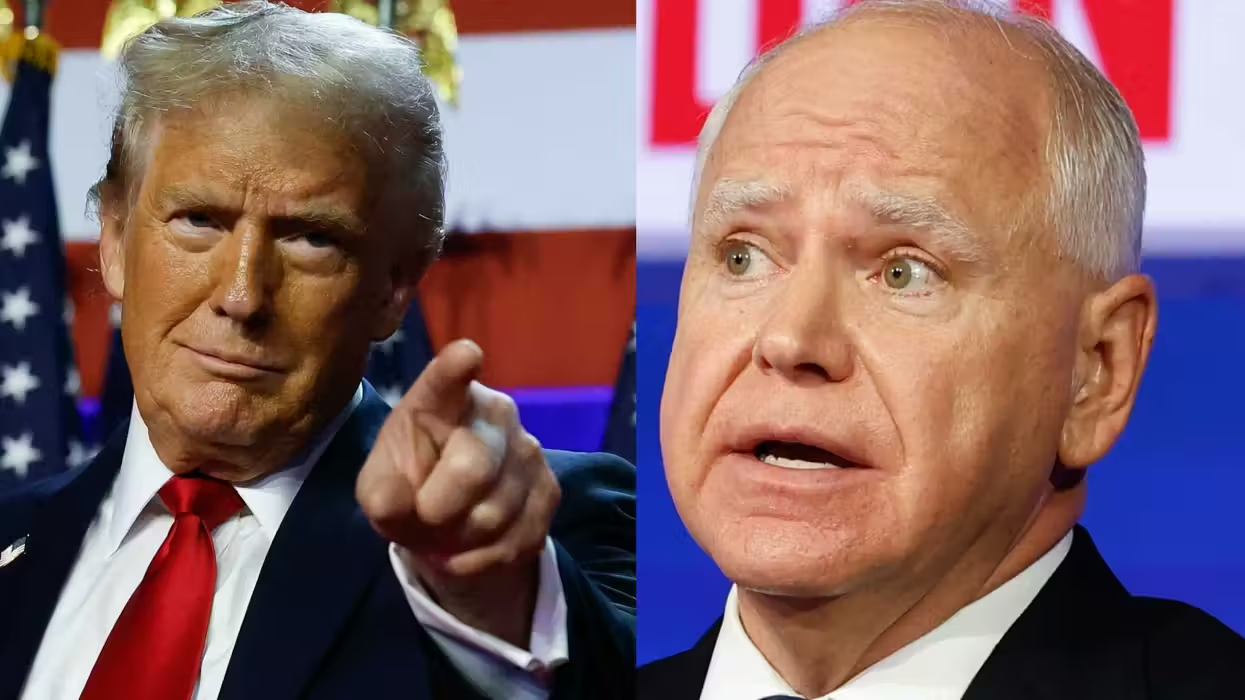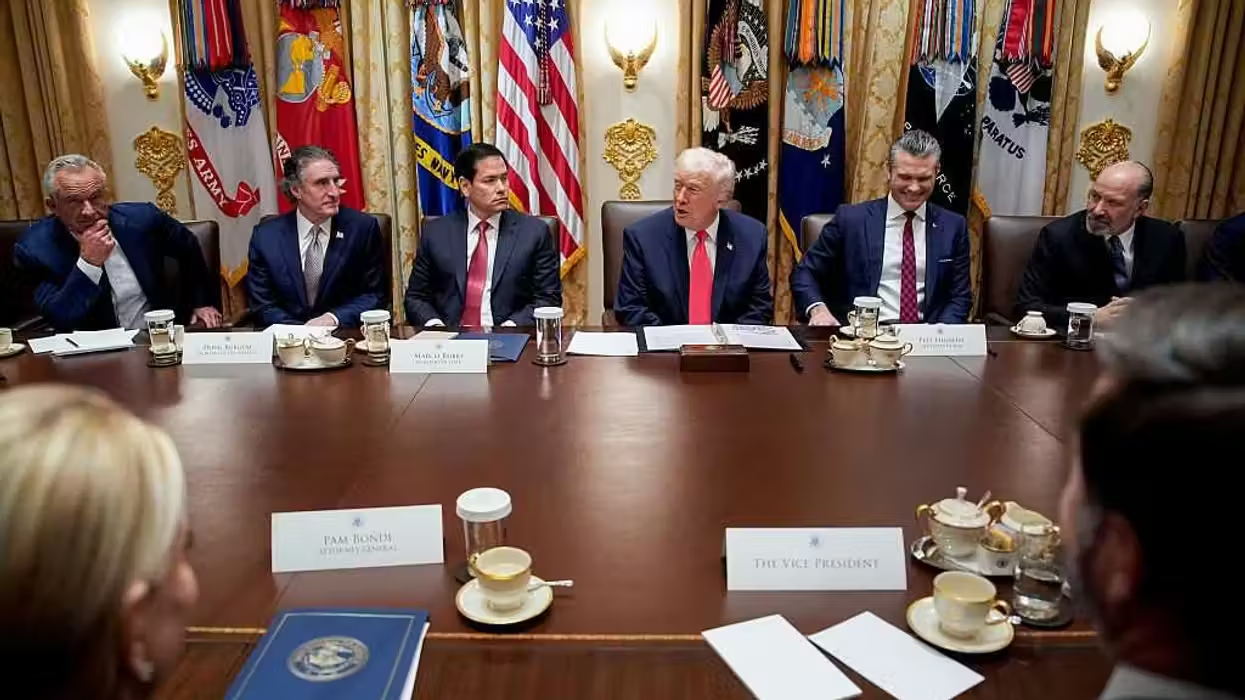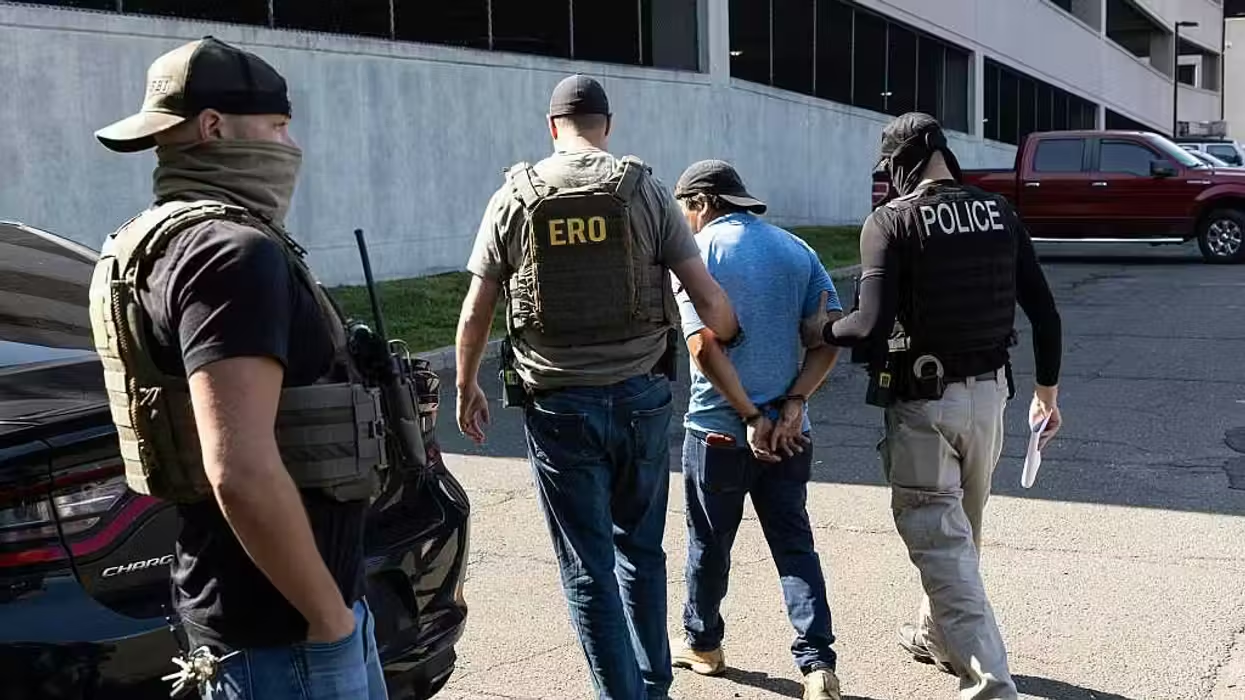
© 2025 Blaze Media LLC. All rights reserved.
The Pentagan has recommended lethal action, according to one administration official.
WASHINGTON (TheBlaze/AP) - An American citizen who is a member of al-Qaeda is actively planning attacks against Americans overseas, U.S. officials say, and the Obama administration is wrestling with whether to kill him with a drone strike and how to do so legally under its new stricter targeting policy issued last year.
CIA drones are tracking the individual, but because he is a U.S. citizen the Justice Department must build a case against him before a strike can be authorized.
 The Obama Administration is deciding whether to strike a U.S. citizen working with al-Qaeda overseas (Image via Shutterstock).
The Obama Administration is deciding whether to strike a U.S. citizen working with al-Qaeda overseas (Image via Shutterstock).
Four U.S. officials said the American suspected terrorist is in a country that refuses U.S. military action on its soil and that has proved unable to go after him. And President Barack Obama's new policy says American suspected terrorists overseas can only be killed by the military, not the CIA, creating a policy conundrum for the White House.
The government requested the AP withhold the name of the country where the suspected terrorist is believed to be because officials said publishing it could interrupt ongoing counter terror operations.The officials spoke on condition of anonymity because they were not authorized to discuss the classified drone targeting program publicly.
Two of the officials described the man as an al-Qaeda facilitator who is directly responsible for deadly attacks against U.S. citizens overseas and who continues to plan attacks against them that would use improvised explosive devices.
But one U.S. official said the Defense Department was divided over whether the man is dangerous enough to merit the potential domestic fallout of killing an American without charging him with a crime or trying him, and the potential international fallout of such an operation in a country that has been resistant to U.S. action.
 The Obama Administration is weighing whether to attack the American terrorist or to hold back and avoid the political fallout (Image via Shutterstock).
The Obama Administration is weighing whether to attack the American terrorist or to hold back and avoid the political fallout (Image via Shutterstock).
Another of the U.S. officials said the Pentagon did ultimately decide to recommend lethal action.
The officials said the suspected terrorist is well-guarded and in a fairly remote location, so any unilateral attempt by U.S. troops to capture him would be risky and even more politically explosive than a U.S. missile strike.
Under new guidelines Obama addressed in a speech last year to calm anger overseas at the extent of the U.S. drone campaign, lethal force must only be used "to prevent or stop attacks against U.S. persons, and even then, only when capture is not feasible and no other reasonable alternatives exist to address the threat effectively." The target must also pose "a continuing, imminent threat to U.S. persons" — the legal definition of catching someone in the act of plotting a lethal attack.
The senior administration official confirmed that the Justice Department was working to build a case for the president to review and decide the man's fate. The official said, however, the legal procedure being followed is the same as when the U.S. killed militant cleric and former Virginia resident Anwar al-Awlaki by drone in Yemen in 2011, long before the new targeted killing policy took effect.
If the target is an American citizen, the Justice Department is required to show that killing the person through military action is "legal and constitutional"— in this case, that the Pentagon can take action against the American, as the administration has ruled him an enemy combatant under the Authorization for Use of Military Force, a resolution Congress passed a week after the 9/11 attacks to target al-Qaeda.
The official said the president could make an exception to his policy and authorize the CIA to strike on a onetime basis or authorize the Pentagon to act despite the possible objections of the country in question.
The Justice Department, the Pentagon and the CIA declined to comment.
U.S. drones have killed four Americans since 2009, including al-Awlaki, who the administration said was actively plotting to kill U.S. citizens.
Attorney General Eric Holder said the three other Americans were killed by drones, but were not targeted. The three are Samir Khan, who was killed in the same drone strike as al-Awlaki; al-Awlaki's 16-year-old son, Abdulrahman, a native of Denver who was killed in Yemen two weeks later; and Jude Kenan Mohammed, who was killed in a drone strike in Pakistan.
House Intelligence committee chairman Mike Rogers, R-Mich., complained last week in a House Intelligence hearing that a number of terrorist suspects were all but out of reach under the administration's new rules that limit drone strikes based on the target's nationality or location. Two of the U.S. officials said the Justice Department review of the American suspected terrorist started last fall.
"It is very clear that there have been missed opportunities that I believe increase the risk of the lives of our soldiers and for disrupting operations underway," Rogers said last week.
In the same Intelligence hearing, Rep. Jan Schakowsky (D-IL) prodded for more information about the negative impacts of the drone strikes for the surrounding population. "Does the intelligence community weigh or consider how signature strikes, strikes against unnamed military aged males, may increase the terrorist threat because they could generate hatred for Americans and actually motivate youth to join rather than reject terrorist groups?" Schakowsky asked.
In January a video surfaced on YouTube of what appears to be Afghans stoning a downed U.S. drone. The International Security Assistance Force Public Affairs office confirmed to TheBlaze in an e-mail that the video "appeared to surface on a Press TV report (Iran) ... we have no operational reporting of mishaps involving remotely piloted aircraft of that type any time in the recent past."
If the video is real, it seems to confirm Schakowsky's query - the drone hatred motivates youth, at the very least, to express their distaste for the unmanned aerial systems.
--
(H/T: Huffington Post)
Follow Elizabeth Kreft (@elizabethakreft) on Twitter.
Want to leave a tip?
We answer to you. Help keep our content free of advertisers and big tech censorship by leaving a tip today.
Want to join the conversation?
Already a subscriber?
more stories
Sign up for the Blaze newsletter
By signing up, you agree to our Privacy Policy and Terms of Use, and agree to receive content that may sometimes include advertisements. You may opt out at any time.
Related Content
© 2025 Blaze Media LLC. All rights reserved.
Get the stories that matter most delivered directly to your inbox.
By signing up, you agree to our Privacy Policy and Terms of Use, and agree to receive content that may sometimes include advertisements. You may opt out at any time.






